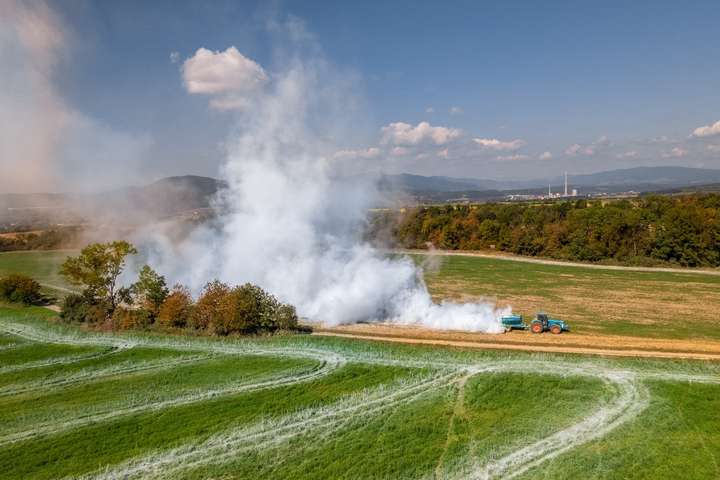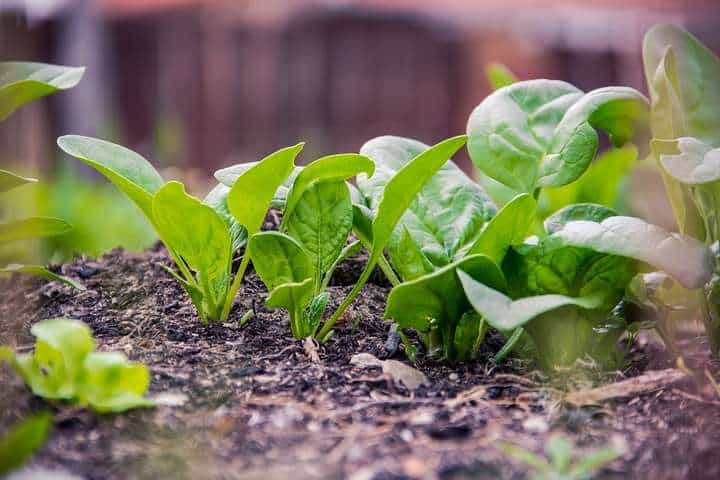Agriculture lime is a type of calcium compound that is used to help neutralize acidic soils. It can easily be applied to the land, preventing the dirt from becoming too acidic. This additive is a calcium carbonate mineral that makes up the bulk of the compounds, while ground gypsum is in small amounts. See more about gypsum on this site. Because of how easy it is to apply and its neutralizing powers, agricultural lime is commonly used on many farms today.

It is made from limestone pulverized into a very fine powder. This fertilizer allows the soil to retain more water and nutrients than the traditional varieties. It also helps prevent soil erosion. Calcium carbonate is one of its primary active components, but various chemicals can be added, including calcium oxide. Please read more on what is dolomite lime.
There’s the slaked calcium hydroxide and quicklime for calcium oxide. This consists of powdered limestones that do not necessarily require a kiln but it’s produced by milling. There’s the availability of high calcium varieties that many farmers can use on their lands as soil conditioners.
You may find them used in farm fields to correct acidity and provide a more neutral base to the land. Everything was done with the burnt line in the past, but many rely on technology to produce fine powder made from stone mills.
How is it Used?
The additive promotes plant growth and helps farmers fertilize their crops. It is often used to help with plant diseases, insect infestations, and soil conditions. The high calcium ag lime is usually found in granular form but is also available in powder form that can be mixed into water or sprayed over the fields. Some effects to know about are the following:
- It can decrease soil acidity and increase the alkalinity
- It provides the plants a source of calcium that they need for growth
- Improves the penetration of water in the land
- Significantly enhance the uptake of potassium, phosphorus, nitrogen, and other significant nutrients in the soil
The other forms of limes are hydrated and dolomitic. The dolomitic one is often used in gardens and generally provides a similar effect to the agricultural lime. There’s the addition of magnesium that’s added to the calcium. This is a disinfectant to produce alkaline and dry environments during farming, so the bacteria don’t multiply.
Agricultural lime is used to eliminate weed roots and toxins in the soil. The amount you need depends on the type of lime, the size of your field, and the pH levels of your soil. Calculate using online tools where you can select arable or grass farming lands. With online calculators, you just need to enter the current pH of the soil and whether it’s loamy or sandy.
Since lime is a powdery substance, it can be easily used for farming and gardening. Three types are usually used: quicklime, hydrated, and dolomite. Quicklime is the quickest to react with water, while the dolomitic ones have a slower reaction time and are easier on specific plants. See more about quicklime at this URL: https://www.ncbi.nlm.nih.gov/books/NBK216471/. Hydrous varieties can be mixed with other fertilizers, or they can be slow-reacted with water.
What Crops to Grow?

This essentially lowers the soil acidity, which makes it pH neutral. The addition is going to improve their crops and make them grow well. Farmers make it a point to test their soil regularly to ensure that it does not become too acidic. If you’ve suddenly decided to grow vegetable patches, this will give you a boost.
Most of the plants that need these additions are beans, peas, and other legumes. For growers in the home, adding lime to garlic, onions, asparagus, parsnips, and spinach is also helpful. Some fruit trees become abundant year-round and can reach their full potential in no time.
Some popular flowers for ornamental and decorative gardens that need this nutrient may include buddleia, delphiniums, and gypsophila.
Vegetation that Doesn’t Need Lime
It’s best to do a lot of research before applying this to your field. Some crops and vegetation don’t necessarily need it and may react badly to the lime. These may include sweet potatoes and other related crops. It’s also not ideal for growing tomatoes and capsicums.
Generally, many berries may prefer and thrive in acidic environments, so they won’t react favorably with a more neutral pH in the soil. These are also similar to raspberries, strawberries, and blueberry bushes.
Many flowers may want more acidic soil, so you should stick to the side of caution. Popular species that don’t need a neutral pH include azalea, daphne, maples, magnolias, and rhododendrons. Test the pH first and check the levels when planting perennial plants like shrubs and lawn grasses.

